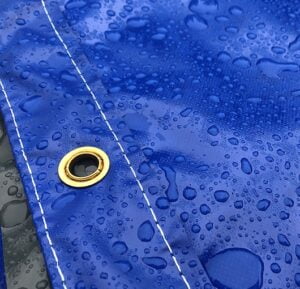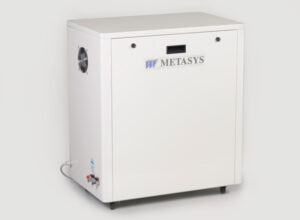Air compressors are essential tools used in a variety of industries, from construction to automotive repair. They play a crucial role in powering pneumatic tools and equipment, making work easier and more efficient. However, like any other machinery or equipment, air compressors require protection from external elements that can cause damage or reduce their lifespan, and this is where air compressor covers come into play.
Designed specifically for air compressors, these covers provide a protective barrier against weather elements, rust, and corrosion, ultimately prolonging the life of your air compressor. In this guide, we will delve into the importance of air compressor covers, their functionality, different types available in the market, materials used to make them, and tips on how to choose the right cover for your specific needs.
Definition and Purpose of Air Compressor Covers
So, what exactly is an air compressor cover? Think of it as a superhero cape for your air compressor. It’s a specially designed protective cover that shields your compressor from the harsh elements of the outdoors, be it rain, snow, dust, or the scorching sun. But that’s not all. A good air compressor cover also prevents rust and corrosion and helps to maintain the compressor’s optimal performance. In short, an air compressor cover is your solid investment in prolonging the lifespan of your air compressor.
How Air Compressor Covers Work
Air compressor covers function by creating a protective barrier that shields the machinery from harmful external influences. The cover’s protection mechanism is designed to keep out dust, rain, snow, and the harmful rays of the sun. This barrier not only prevents damage to the mechanical parts but also reduces the risk of rust and corrosion, which can significantly degrade the performance and lifespan of the air compressor. Below, we elaborate on how the cover protects the compressor from the elements.
1. Corrosion
Corrosion happens when metal surfaces react with oxygen and water, leading to the formation of rust. Since an air compressor is mostly made of metal components, it’s highly vulnerable to corrosion when in direct contact with moisture or rainwater. An air compressor cover keeps out any moisture from reaching the surface of the machinery, therefore preventing corrosion.
2. Dust
Dust may seem like a harmless element, but it can significantly affect the performance and lifespan of an air compressor. When dust accumulates on the machinery’s surfaces, it can clog the moving parts and limit their function. Regularly cleaning out dust from an air compressor may be time-consuming and tedious. An air compressor cover prevents dust from entering the machinery in the first place, saving you time, effort, and potential mechanical issues.
3. UV Rays
UV rays from the sun can also cause significant damage to an air compressor, especially when exposed for long periods. The high heat from these rays can cause plastic parts to become brittle and metal surfaces to warp or expand, resulting in malfunctioning machinery. A cover provides a layer of protection against these harmful rays, ensuring that your air compressor remains in optimal condition.
4. Extreme Temperatures
Extreme temperatures can also affect the performance and functionality of an air compressor. During winter, low temperatures can cause condensation to form on the machinery’s surfaces, increasing the risk of corrosion. On the other hand, high temperatures during summer may cause overheating and damage to internal components. An air compressor cover helps regulate the internal temperature, ensuring that your machinery remains in top condition regardless of external weather conditions.
5. Debris
When working in construction or industrial settings, debris and other particles can easily find their way into an air compressor. These particles can damage delicate components or cause blockages in air passages, leading to reduced efficiency and potential breakdowns. Having a cover for your air compressor acts as a barrier against debris, keeping your machinery safe from harm and functioning at its best.
6. Aesthetic Appeal
Aside from practical reasons, an air compressor cover can also enhance the look of your machinery. With customizable options available, you can choose a design or color that complements your workspace or personal aesthetic. This will not only protect your air compressor but also add a touch of style to your work area.
Types of Air Compressor Covers

When it comes to choosing an air compressor cover, there are several options to consider. Each type has its own set of benefits and is designed to suit various conditions and environments.
Vinyl Covers
Vinyl covers are a popular choice due to their durability and resistance to moisture. They are often lined with a soft fabric to provide cushioning and protection against bumps and scratches. Vinyl covers are also easy to clean and maintain, making them an excellent option for environments where the compressor may be exposed to dirt and debris.
Polyester Covers
Polyester covers offer excellent water resistance and can withstand exposure to harsh weather conditions. They are lightweight, making them easy to handle and install. Their ability to resist fading and staining makes them ideal for outdoor use, ensuring your air compressor looks good for years to come.
Custom-Made Covers
If you have specific requirements or want a cover that matches your aesthetic, custom-made covers are the way to go. These covers are tailored to fit the exact dimensions of your air compressor, providing optimal protection. You can choose from a variety of colors, patterns, and materials to create a cover that not only protects your machinery but also enhances its appearance. Custom-made covers, while a bit more expensive, offer the best of both worlds – functionality and style.
Summary of Advantages and Disadvantages of Air Compressor Covers
Advantages
Protection from Elements: Air compressor covers protect your equipment from harsh weather conditions, including rain, snow, and excessive sunlight.
Durability: Made from materials like vinyl and polyester, these covers are designed to last, offering long-term protection to your air compressor.
Prevents Rusting: By shielding your air compressor from moisture and humidity, the covers help prevent rust and corrosion, thus extending the life of your equipment.
Easy Maintenance: Most covers are easy to clean and maintain, helping keep your compressor in pristine condition.
Aesthetics: With custom-made covers, you can enhance the look of your air compressor. You have the freedom to choose colors, patterns, and materials that match your style preferences.
Fit and Coverage: Custom-made covers provide optimal coverage as they are designed to fit the exact dimensions of your air compressor.
Disadvantages of Air Compressor Covers
Cost: While covers offer practical benefits, they come at a cost. Custom-made covers can be more expensive than generic ones.
Inconvenience: Removing and putting on the cover every time you use your air compressor may seem like an added task and could deter some from using one.
Limited Availability: Finding the right fit for your air compressor can be challenging, especially for older or less common models.
Maintenance: Some covers require regular upkeep, such as drying and storing properly to prevent mold growth.
Choosing the Right Air Compressor Cover: Factors to Consider

Size
It’s crucial to choose a cover that fits your air compressor snugly. Measure your equipment carefully, including height, width, and depth, before making a purchase. A cover that’s too tight might be difficult to put on and remove, while one that’s too loose may not provide adequate protection.
Material
The material of your air compressor cover matters a lot. Polyester and vinyl are common choices due to their durability and resistance to elements. However, the best material for you would depend on your specific needs. For instance, if your compressor is often exposed to harsh sunlight, a cover made of UV-resistant material would be ideal.
Weather Conditions
Consider the typical weather conditions in your area. If you live in a region with heavy rainfall, choose a cover with excellent water resistance. For areas with high humidity, a cover with good breathability helps prevent moisture buildup and subsequent rusting. Conversely, if your air compressor is located in a dusty area, a cover that can keep out dirt and debris is a smart choice.
Maintenance of Air Compressor Covers: Cleaning Tips
Regular cleaning of your air compressor cover is crucial for its longevity. To clean it right, check the manufacturer’s instructions for specific cleaning guidelines. Generally, mild soap and water solution works well for most materials. Avoid using harsh chemicals or bleach as these can degrade the material over time. Rinse thoroughly and let the cover dry completely before storing or placing it back on the compressor to prevent mold and mildew growth.
The lifespan of an air compressor cover varies based on the material, usage, and maintenance. That aside, when it’s time to consider a replacement, if you notice signs of wear and tear such as holes, rips, or fading. Such damages reduce the cover’s efficacy in protecting your compressor. Similarly, if the cover no longer fits properly due to stretch or shrinkage over time, it would be best to replace it. A well-fitted cover is crucial in ensuring optimal protection against the elements.
Conclusion
To wrap things up, air compressor covers are essential for protecting your covers. They shield your compressor from harsh weather conditions, dirt and debris, and potential damage. By considering factors such as material, fit, and maintenance, you can choose the right cover that will provide optimal protection and durability for your air compressor. Remember to regularly clean and inspect your cover for any signs of wear and tear, and replace it when necessary. With proper care and maintenance, your air compressor cover will continue to serve its purpose for many years to come.

